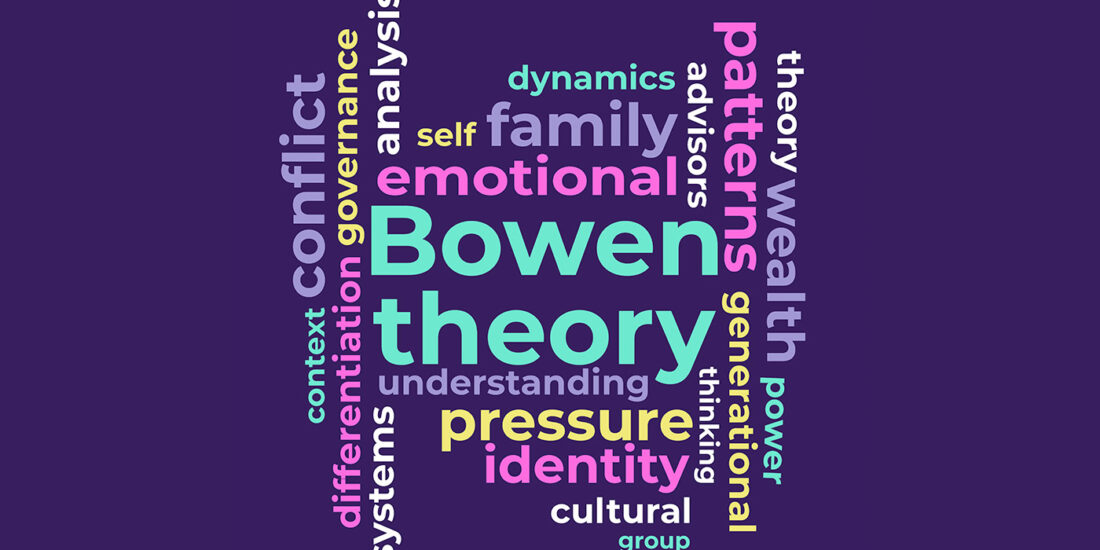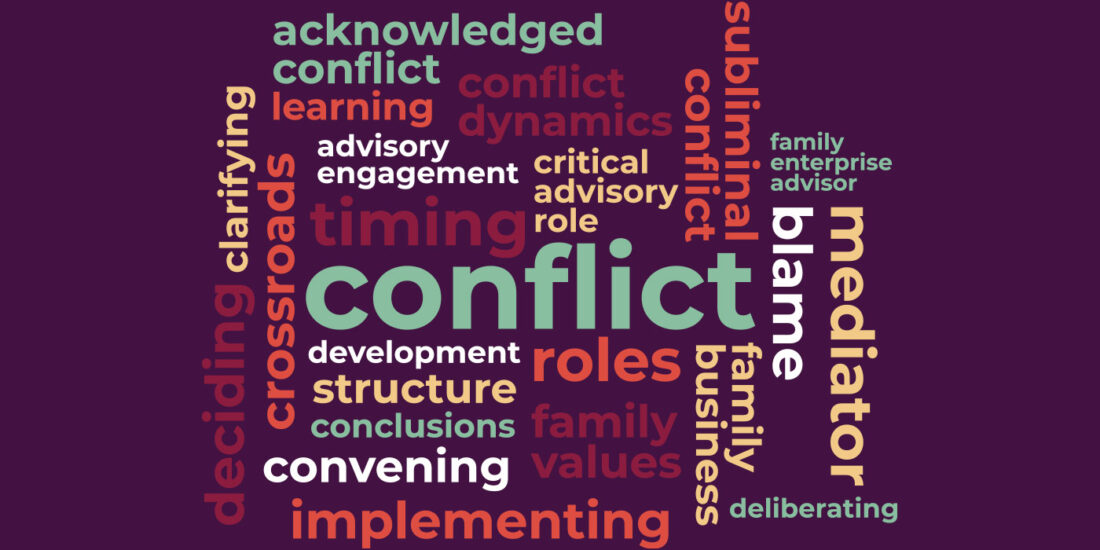
Advising & Consulting
As the family enterprise profession evolves, authors offer empircal insights and examples for colleagues to use in their practices; examples of tools and assessments are included.
On Accounting to the Beneficiary
In this week’s edition of FFI Practitioner, FFI Fellow James E. Hughes, Jr., and Keith Whitaker consider the responsibilities of a trustee to a beneficiary.
Navigating Individuality and Family Unity: Bowen Theory Today
Thank you to Pauline Lemaire, Daniel Trimarchi, and Wanja Michuki from the Systems Thinking Virtual Study Group for this week’s edition.
Strengthening Asian Family Bonds: A Twenty-Minute Assessment Tool
Thank you to Asian Circle VSG members Keng-Fun Loh and Randel S. Carlock for this week’s FFI Practitioner.
Money & Generations: Turning Financial Disputes into Connection
Thanks to Anneleen Michiels and Claudia Astrachan for this issue exploring another lens for encouraging conversations on values and goals before moving clients into technical solutions.
Shake It Off: What Taylor Swift Can Teach Women in Family Enterprise
In the second in our October series of articles and podcasts related to the FFI annual conference, we feature an article by 2025 Conference Program Committee member, Patricia Annino.
Technology, Family Offices, and Investing for the Future
Today’s FFI Practitioner features a podcast on “Technology, Family Offices, and Investing for the Future” with Aaron Vaccaro, president of Singularity.
Bridging International Risk Management for Entities in the Family Enterprise
Thank you to William J. Kambas, Linda B. Meade, Amber Melville-Brown, Doron Goldstein, and Jacopo Liguori for this edition, the third of a periodic series of issues dedicated to topics related to private trust companies.
The Power of Narrative in Family Businesses: A Conversation with Jamie Yuenger and Lisabeth Sugahara
FFI Practitioner is pleased to feature a podcast conversation with guests Jamie Yuenger from StoryKeep and Lisabeth Sugahara from Fairfield-Maxwell Ltd.
Why Creating a Family Investment Policy Can Help Avoid Conflict Down the Line
Thank you to Omar Romman for this FFI Practitioner edition, suggesting that establishing family investment policies with clients can help mitigate conflicts before they start.
FFI Practitioner Articles We Love: GEN Faculty Member Rodolfo Paiz
This issue is the third in our series of “Articles We Love,” curated by GEN faculty members. This week Rodolfo Paiz, GEN 202 faculty member and FFI Fellow, has chosen the articles.
Launch Your Newsletter: Become a Digital Family Enterprise Advisor
Thank you to this week’s contributor, FFI Fellow Sajjad Hamid, discussing how the use of digital newsletters can help advisors increase their skills in today’s communication environment.
Family Offices Around the World: A Conversation with Mary Duke, Aik-Ping Ng, and Peter Vogel
FFI Practitioner is pleased to feature a podcast conversation with Mary Duke, Aik-Ping Ng, and Peter Vogel about the future of family offices worldwide.
Advancements in Longevity Research: An Interview with Dr. Kris Verburgh
FFI Practitioner is pleased to feature a podcast conversation with Dr. Kris Verburgh, who presented the keynote at the 2019 Global Conference.
The Family Bank: Some Legal and Fiduciary Perspectives on Deploying Financial Capital
Thanks to William J. Kambas and Linda B. Meade for this article, the second of a periodic series of issues dedicated to topics related to private trust companies.
Building a Culture of Care in Trusts: Part II
The second part of this two-part series by FFI Fellow James E. Hughes, Jr., and Keith Whitaker, commissioned by the James E. Hughes, Jr. Foundation, picks up where Part I ends.
Building a Culture of Care in Trusts: Part I
Thank you to FFI Fellow James E. Hughes, Jr., and Keith Whitaker for this two-part article series, commissioned by the James E. Hughes, Jr. Foundation.
AI Adoption in Family Enterprises: Balancing Innovation with Values
Thank you to Vern Glaser, Jennifer Sloan, and Matt Knight for this week’s FFI Practitioner article about intelligently implementing AI in a family enterprise, with strategies for both family enterprise advisors and their client families.
FFI Practitioner Articles We Love: GEN Faculty Member Natalie McVeigh
This issue is the second in our series of “Articles We Love,” curated by GEN faculty members. This week Natalie McVeigh, GEN 201 Faculty member and FFI Fellow, has chosen the articles.
Working with a Family Business Stuck in Conflict: When to Bring in a Family Business Mediator
Thank you to Susan Kaye and Jack Troast, from the FFI Mediation Virtual Study Group, for this week’s FFI Practitioner issue.
Measuring Performance in Family Enterprises: An Interview with Sir Andrew Likierman
FFI Practitioner is pleased to feature a podcast conversation with Sir Andrew Likierman, 2025 recipient of the 2086 Society’s FFI Scholar-in-Residence grant.





















